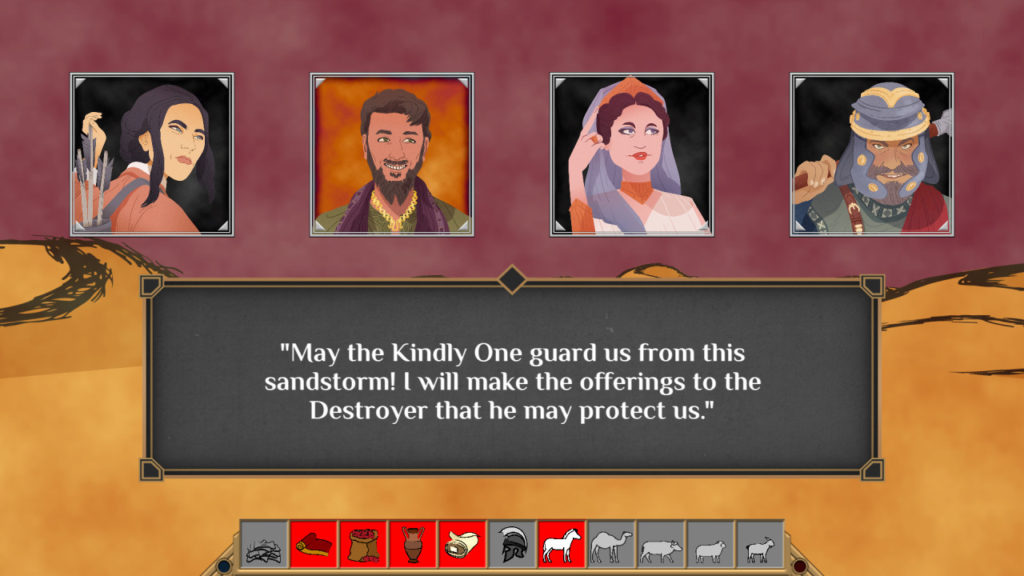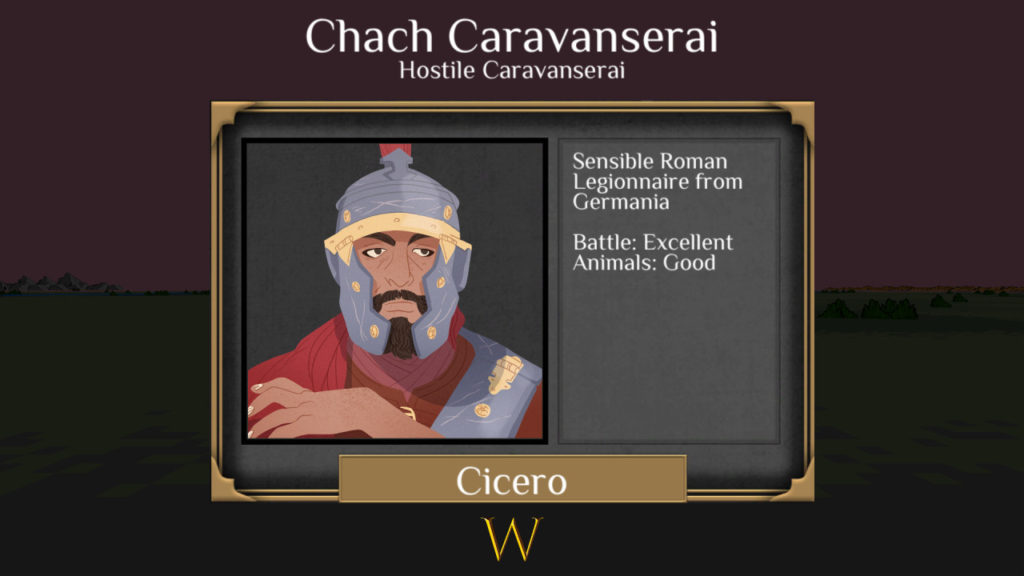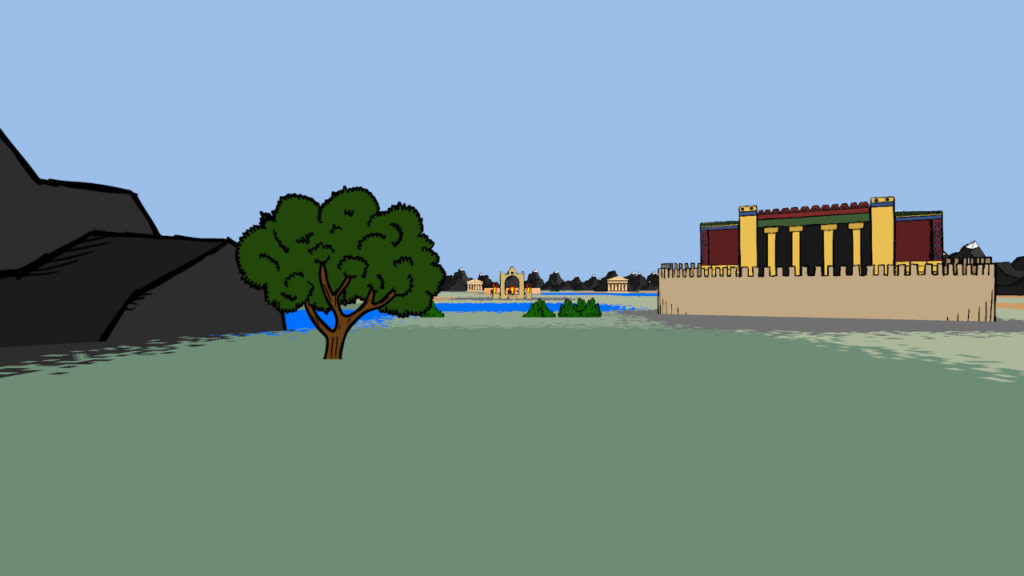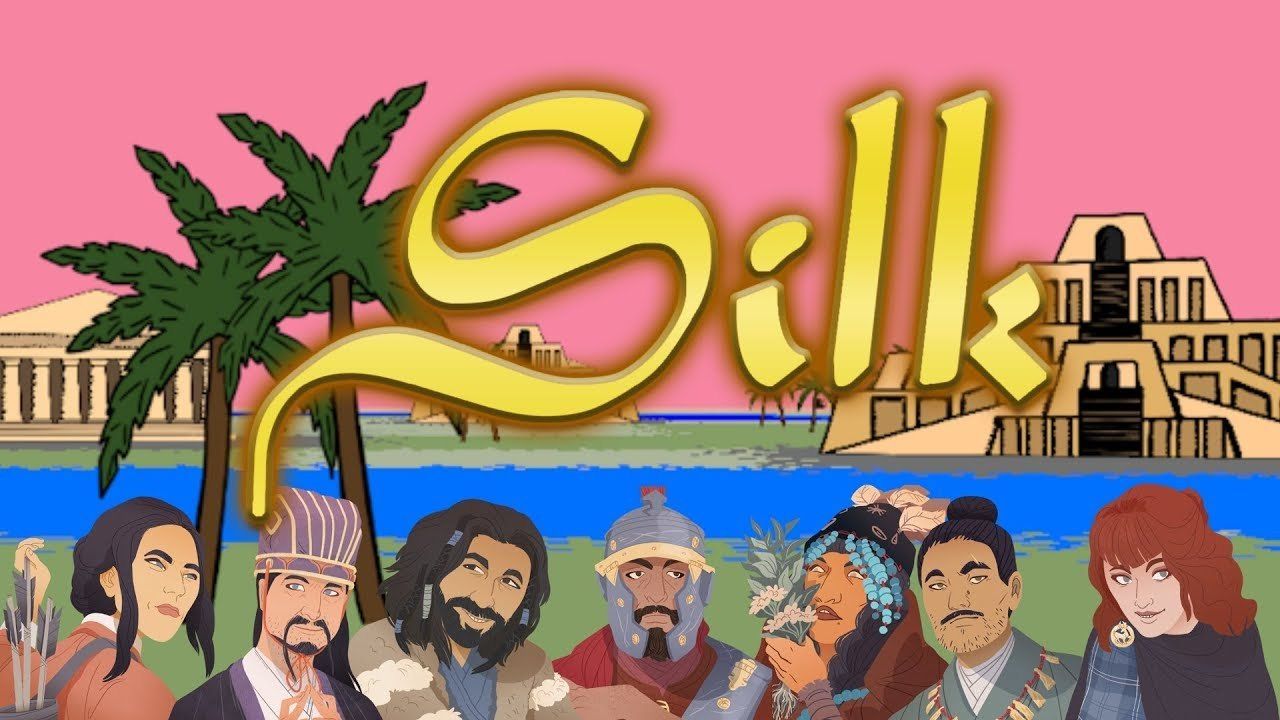I’m not entirely sure I know what Silk is trying to be.
Its main selling points are having the “biggest hand-crafted world of all time”, and it’s authenticity as a love-letter to the tile-based RPGs of the ’80s.
But here’s the problem; within those three million square miles… there’s really nothing much to do.
The primary thrust of the game is travel and trade. Trade silver, silk, spices and such, travel to places where these wares are worth a bit more and trade for a tidy profit, and for the resources required to continue existing within this perpetual purgatory.
You occasionally encounter bandits who want to stab you, wolves who mostly ignore you, and livestock that desperately try to escape your inevitable square-by-square advance.
You have to make occasional decisions such as the exciting “should I fish, or starve”, “what shall I do when it rains”, and “should I put a rock on this shrine with all the other nice rocks.”

That’s about it. Your caravans morale is tracked and unsurprisingly it’s about as easy to keep that up as a kite made out of an anvil. Spirits are mostly raised by tributes to the gods, such as those aforementioned high stakes rock placing shenanigans, when what I’m fairly sure my merry band would really appreciate is a few crates of liquor and crack at some nice distracting camel jousting.
One of the big problems here is that the games this is trying to pay tribute to were set in fantastical worlds, with lofty world-shaping quests, battling demons and necromancers alongside dwarven warriors and elven wizards.
Running a caravan through euro-asiatic 200AD to get the best deal on your cart of wool just does not have the same pizazz.

It felt a bit like I was playing an early education game. A feeling bolstered by the brief pieces of dialogue upon discovering a settlement detailing trivia about that particular place’s importance historically and geographically. Dryly presented, but interesting enough to those who would be interested.
But there was no way to review these tidbits, and no way that I could find to actually record the details of my travels; which areas belonged to which factions, what kind of reception I could expect and what the actual point of my aimless wandering really was. Something which could have really added to the game’s goals of being an enjoyable open-world of exploration and personal journeys.
A lot of Silk’s issues could be chalked up to attempting to authenticity replicate its inspirations. But whenever a developer pulls that excuse out I can’t help but wonder if those are really the design choices that the original developers would have made if the technology of the time had allowed for something greater.

Silk feels like the pre-alpha of a game in desperate need of more;
More variety in encounters; More complexity to the various advisers characteristics and skills; More intricacy to the system governing trade, and more challenges regarding combat (or the avoidance of it).
As it stands it just feels a bit like the Oregon Trail, but without all the delightful dysentery.

